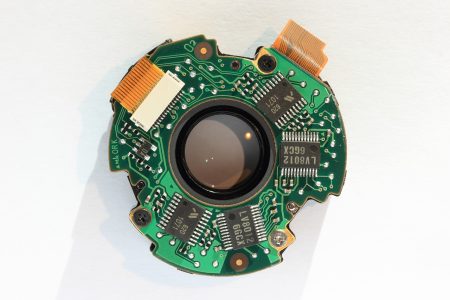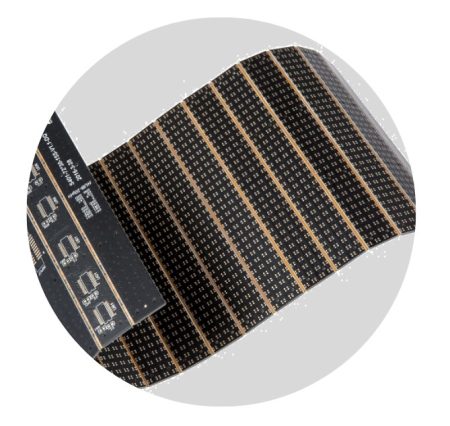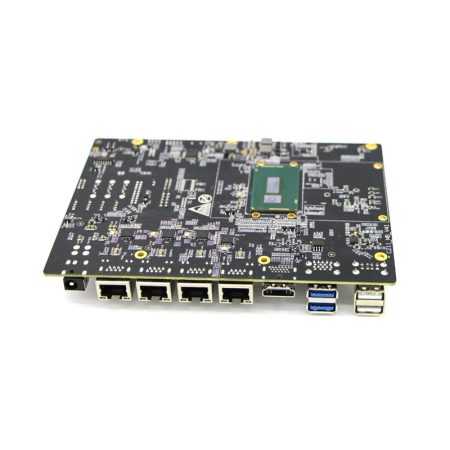- +86-755-23012705
- Building 3, Jinfeng Industrial Park, Fuyong Street, Baoan District, Shenzhen ,China
- [email protected]
As the year draws to a close, many industries experience an uptick in demand, and the electronics sector is no exception. For PCB (Printed Circuit Board) manufacturers in China, the year-end period can be particularly challenging, as companies face the pressures of delivering high volumes of products on tight timelines. This peak season, often driven by holiday shopping demands and new product releases, places immense stress on manufacturers to ensure they meet customer requirements without sacrificing quality or efficiency.
In this blog, we’ll explore the key challenges faced by PCB manufacturers during the year-end rush, particularly in the context of SMT (Surface-Mount Technology) and how they navigate these hurdles to deliver high-quality products on time.
The year-end rush in the PCB manufacturing sector is largely driven by the consumer electronics boom. Products like smartphones, wearables, smart home devices, and gaming consoles all require printed circuit boards, and manufacturers must ramp up production to meet these demands.
For PCB manufacturers in China, the spike in demand often means managing an influx of orders, coordinating tighter delivery schedules, and dealing with a range of supply chain disruptions. At the same time, the increased complexity of modern electronics means that more advanced PCB designs and SMT assembly processes are required, adding an additional layer of difficulty to the situation.

The most immediate challenge for PCB manufacturers during the year-end rush is the sheer volume of orders. Customers from various sectors—consumer electronics, automotive, medical, and industrial applications—look to meet their production goals by placing large orders with PCB manufacturers.
The surge in orders often comes with tight deadlines. This creates a bottleneck as factories must balance the capacity needed to handle the increase in orders with the ability to maintain production quality and meet deadlines. Manufacturers must adopt strategies that allow them to prioritize orders and manage production lines more efficiently.
Another major challenge during the year-end period is managing the supply chain. Raw materials such as copper, solder paste, substrates, and other key components are in high demand globally, and this can lead to shortages or price increases. Additionally, shipping delays can exacerbate these issues, especially when transporting goods internationally or dealing with rising logistics costs.
With longer lead times for raw materials, PCB manufacturers may find themselves in a difficult position, having to adjust production schedules or find alternative suppliers quickly. For factories in China, these challenges are compounded by global logistics disruptions, particularly in air and sea freight.
Labor availability can be a significant issue during the peak season, particularly as China approaches its Chinese New Year holiday. Workers often take time off during this period, and temporary labor can sometimes lack the specialized skills required for advanced PCB production and SMT assembly. Finding and retaining skilled workers during this busy time can be challenging, especially when there is a heightened demand for speed without sacrificing quality.
Additionally, the need for overtime work and weekend shifts can significantly increase labor costs, which in turn impacts the overall production cost for manufacturers. Managing these costs while keeping production on schedule becomes a delicate balancing act.
The end-of-year rush often coincides with an increase in the complexity of the PCBs and SMT assemblies being produced. Modern electronic devices require more advanced PCBs, including multi-layer boards, high-density interconnects (HDI), flexible and rigid-flex PCBs, and those with high-frequency components. These designs require precise manufacturing techniques and advanced SMT assembly processes, which can be difficult to manage under tight deadlines.
In SMT, the increased use of smaller components (such as 01005-sized resistors and capacitors) and complex components like BGAs (Ball Grid Arrays) or QFNs (Quad Flat No-leads) adds another layer of complexity. To meet customer requirements, manufacturers must ensure that their SMT lines are equipped with the latest equipment and are staffed by technicians with the required expertise.
In any manufacturing process, quality control (QC) is crucial, but it becomes even more vital during peak seasons when there is pressure to deliver quickly. PCB manufacturers must ensure that every board meets the required specifications and that SMT assemblies function properly. Even small defects in the assembly process can lead to costly returns, rework, or even delays in customer product launches.
Quality assurance in the form of automated optical inspection (AOI), X-ray inspection for hidden solder joints, and functional testing is essential. However, these processes can slow down production, and manufacturers need to find ways to balance speed with quality. It’s a challenge that requires close attention to detail and careful management of every step of the production process.

Despite these hurdles, Chinese PCB manufacturers have developed various strategies to manage the year-end rush effectively. Here’s how they approach the challenge:
Effective production scheduling is crucial during peak season. To handle the surge in orders, many manufacturers use sophisticated software to plan production schedules, prioritize orders, and allocate resources effectively. By analyzing demand patterns in advance, manufacturers can better predict busy periods and allocate staff and machinery accordingly.
Additionally, flexible scheduling, such as using overtime or adding extra shifts, helps meet tight deadlines. Some manufacturers even adjust their production lines to handle specific customer requirements, prioritizing high-volume orders without sacrificing quality.
To manage supply chain disruptions, many PCB manufacturers strengthen relationships with key suppliers. By securing long-term contracts or placing early orders, manufacturers can ensure priority access to critical raw materials during the peak season. Some also diversify their supply chain to reduce dependency on single suppliers and avoid risks related to material shortages.
In addition, some manufacturers keep a buffer stock of essential materials to avoid disruptions during the holiday rush. By proactively addressing supply chain concerns, they can minimize delays and ensure smooth production.
Automation has become a game-changer in the PCB manufacturing industry, particularly during peak seasons. Advanced SMT machines, such as those with automated pick-and-place systems, can handle high volumes of orders with greater speed and precision, reducing the reliance on manual labor.
Additionally, automated testing and inspection systems can help ensure quality control without slowing down the production process. For example, Automated Optical Inspection (AOI) and X-ray inspection can quickly identify defects in PCBs or SMT assemblies, helping manufacturers catch potential issues before they become costly problems.
To deal with labor shortages, manufacturers often increase their workforce by hiring temporary or contract workers. In addition, manufacturers provide specialized training for their employees to ensure that they are prepared to handle the increased complexity of advanced PCB and SMT work.
Manufacturers also invest in employee incentives to reduce turnover and absenteeism during the busy holiday season. Offering bonuses for overtime, providing a positive work environment, and ensuring good working conditions can help maintain a motivated and skilled workforce.

The year-end rush in PCB manufacturing is a time of both opportunity and challenge. With increased demand, complex orders, and tight deadlines, Chinese PCB manufacturers must navigate a series of obstacles to meet customer expectations. However, through strategic planning, strong supplier relationships, automation, and a focus on quality control, manufacturers can successfully meet the demands of peak season. By staying agile and responsive to customer needs, they not only survive the rush but also strengthen their position in an increasingly competitive market.
Make Your PCB Dreams a Reality with XPCB Limited
XPCB Limited is your go-to partner for turning your PCB dreams into reality. Our streamlined PCB manufacturing process, combined with quick-turnaround prototyping and turnkey PCBA services, ensures that your projects come to life with ease. Trust in our expertise and dedication to quality as we help you achieve your PCB goals. Join us and experience the difference with XPCB Limited.






XPCB Limited is a premium PCB & PCBA manufacturer based in China.
We specialize in multilayer flexible circuits, rigid-flex PCB, HDI PCB, and Rogers PCB.
Quick-turn PCB prototyping is our specialty. Demanding project is our advantage.
Tel : +86-136-3163-3671
Fax : +86-755-2301 2705
Email : [email protected]
© 2024 - XPCB Limited All Right Reserve
